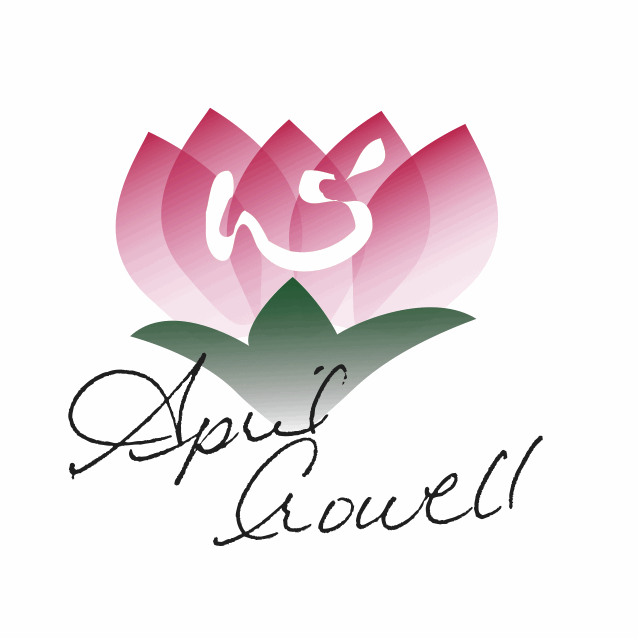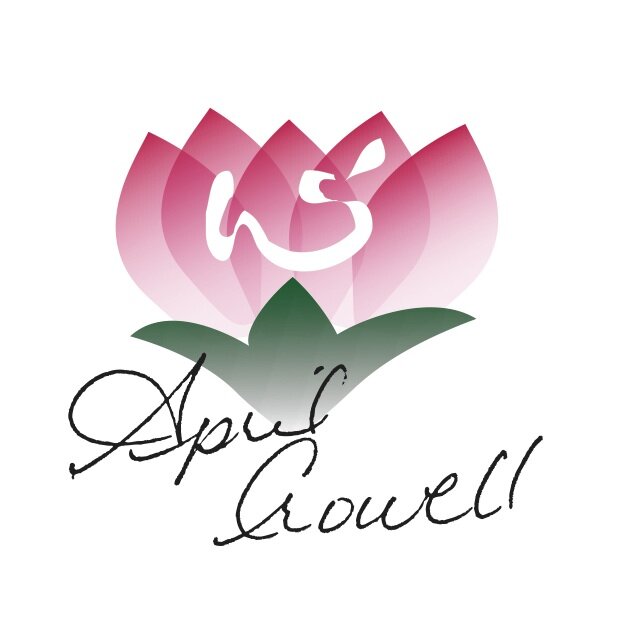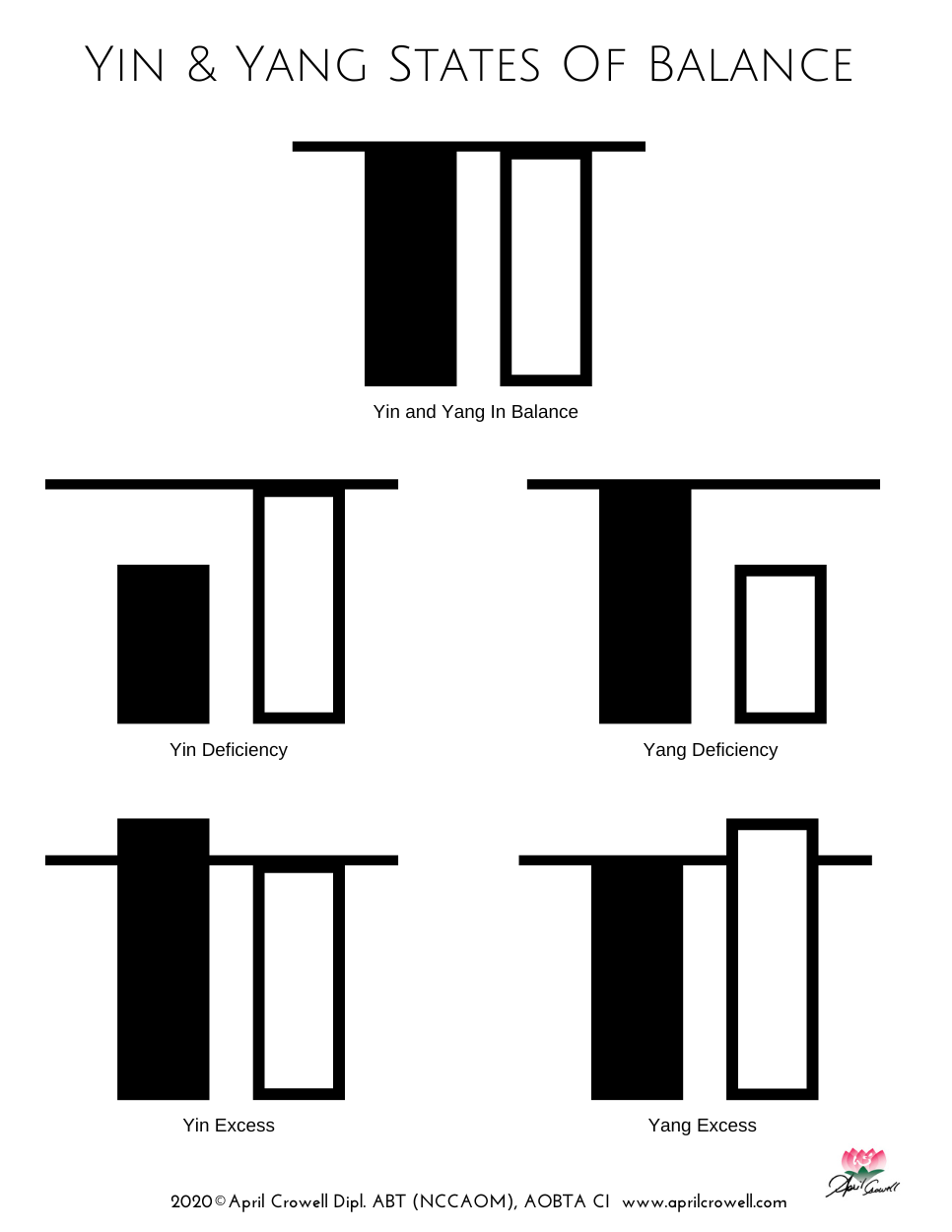Nourishing Yin
Winter, the season of Maximum Yin, is an excellent time to nourish Yin, especially by getting extra sleep and rest.
The concepts of Yin and Yang are the founding principles of Asian Medicine (Chinese Medicine). The two represent the dynamic opposites seen in nature and in our bodies. In health, Yin and Yang exist in harmony in the body – as represented by the Yin Yang symbol. Troubles arise when one or the other is excessive or deficient.
The qualities of Yin
Literally, the shady side of the mountain, Yin is represented by the black section of the symbol. Yin represents the aspects of nourishing, cooling, moistening, calming and rest in the body. It is quiescence, stillness and rest. In the body, the Yin organs rule over the water, blood and fluids. It is the calming waters in the body. It corresponds with the Winter and cooler seasons.
The qualities of Yang
Literally, the sunny side of the mountain, Yang is represented by the white section of the symbol. Yang is hot, movement, growth, immaterial and bright. It is activity. In the body, the Yang organs rule over the creation of energy by transformation, fire and heat and corresponds with the Summer.
Symptoms of Yin deficiency
When Yin is depleted it can no longer balance Yang’s exuberance – we literally start to burn up. Symptoms include:
5 Palm Sweet – soles of the hands and feet and the chest is hot. This pattern is seen in menopause, tuberculosis, mono, some gallbladder patterns and diabetes. It’s a tidal fever that comes and goes and the severity is based on the how little Yin you have to quell Yang. You may also see it call “wasting and thirsting syndrome”.
Anger and irritation
Anxiety
Arthritis that is worse in hot weather
Constipation
Dream disturbed sleep
Dry, sore throat
Dryness – anywhere – skin, eyes, hair, nails, dry and scant urine, etc
Hot flashes and tidal fevers
Flushing
Menopause/perimenopause — Yin deficiency is very common in perimenopause/menopausal women.
Mineral deficiencies - As a general rule minerals are Yin nourishing and vitamins tonify Yang.
Nervousness
Night sweats
Sensation of heat
Thirst
What causes Yin Deficiency?
Overall, Yin deficiency can come from an excess or a deficient pattern. Simply either too much or too little of something – let me explain.
Excess that leads to Yin depletion – too much Yang (heat)
In this case, Yin starts out balanced, but excess fire (Yang) burns up the water (Yin). The fire’s too hot, baby. How did you get there?
Working and playing too hard relative to your health — Constant activity, even the fun kind, without adequate rest appropriate for your needs will burn you out.
Excessive hot or drying foods — Hot spices, alcohol, meats and dried foods dry up the fluids.
Excessive sweating or blood loss — Loss of fluids, leads to depletion of Yin.
Exposure to excessively hot or dry conditions–Deserts are hard on the Yin of the body. Central heating and air conditioning make for interior conditions that will deplete Yin.
Excess childbearing or menses — Yin is required for healthy menses, fertility and childbearing.
Medical treatments — Radiation, chemo, and many prescribed medications and treatments deplete the Yin.
Health crisis — Extreme disease, such as Covid, strokes, heart attacks or other diseases can knock us down, depleting both Yin and Yang. Extra rest and sleep are imperative and relative to each person’s overall health and the severity of the disharmony
Deficiency leading to Yin depletion – too little water (Yin)
Hot flashes, night sweats, 5 Palm Heat, and tidal fevers are all examples of Yin deficiency - a dominant pattern in peri-menopause, menopause. In this instance, Yang may be in balance, but the lack of Yin nourishing fails to control the fire in the body. The fire isn’t actually too hot, but the moistening and cooling of Yin isn’t enough to keep up. There isn’t enough water. These fevers and hot flashes come and go, and often ebb and flow.
How did you get here?
Lack of rest – Resting is doing something – it is recharging your batteries. This can sometimes be a difficult concept in the American culture that often over emphasizes ‘doing.’ We need adequate rest and recuperation to be able to ‘do.’ Please go sit by a river or lack for a while – borrow a bit of the Yin of water to relax and recharge you.
Lack of fluids – Water is the best answer here really.
Lack of blood – Western definition – anemia. Blood deficiency is common in women who have regular cycles and may not replenish after their cycle. It is also common in vegetarians that are eating poorly. As an aspect of Yin, if blood is deficient, Yin will be come so too. Learn how to identify Blood deficiency and how to nourish it.
Lack of vibrant foods – Vegetables and fruits are filled with water. If your diet is all processed, refined, and dry you will lack moisture.
Lack of Yin can run rampant throughout the body or it can target specific areas. The Yin organs, in particular, are vulnerable. For example a
In many perimenopause and menopausal women Yin and Yang are both deficient leaving us with a complicated pattern of exhaustion, fatigue, hormonal imbalances and Yin deficiency at the same time. In this case, we need to nourish Yin while addressing the other patterns and state and stages of disharmony present. While there is a general protocol, individualized treatment is best.
Heart Yin deficiency will appear as agitation, palpitations, anxiety, nervousness and dream disturbed sleep. The very tip of the tongue will be red and dry.
Stomach Yin deficiency is a lack of fluids and enzymes to digest foods, leading to heart burn, GERD and burning hunger.
Lung Yin deficiency will appear as a dry cough, dry throat and sinus, hot flashes and burning sensations in the chest.
Kidney Yin deficiency – by the time Kidney Yin becomes Yin deficient we can be assured that several other organs are Yin deficient as well as Kidney is the root of Yin and Yang in the body. We will be looking for hot flashes and all wasting and thirsting disorders including diabetes, post-viral fever, and tuberculosis. Menopause is a pattern of Kidney Yin deficiency.
Ideally, we want identify what patterns and organs systems are at the root of the problem to focus treat – whether we need to clear excess or nourish Yin. But even without identify the exact root cause of the Yin deficiency, you can begin to replenish Yin which will help relieve symptoms.
How do you replenish and enrich Yin?
Drink Water
Water is the basis of life and Yin in nature. You simply will not manifest Yin without proper hydration – and water is the best source. Watch out for sodas, coffee and some teas that can actually dehydrate. You can enrich your water with herbs that nourish Yin. Hibiscus tea and cucumber added to water are excellent examples.
Rest appropriately
Going, going, gone. If you are always on the go, you will deplete your Yin, after time Blood and other vital essences will follow. Rest, take time to replenish, nap in the heat of the day if you can. How much a person needs depends on their overall health, age, work and stress level. Winter offers an opportunity to sleep a little more, move a little slower, enjoy a good book.
Exercise appropriately
Exercise is vital to health. However, it needs to be matched to the person. Running Robie Creek may be ideal for some, but a someone just recovering from surgery or illness, it’s not optimal. With Yin deficiency, I do not recommend clients run in the heat or do hot yoga. Exercises that induce excess sweating will cause fluid loss–the opposite of enriching Yin. If you are unsure of what the right exercise is for you talk to your Asian medicine medicine practitioner. What’s appropriate for a woman who is going through menopause, having hot flashes and exhausted needs to be of a more gentle, Yin nourishing nature, vs power walking or an extreme body pump class. Go for a stroll and a little dance. Exercise shouldn’t be torture. If you don’t love running - don’t run. Dance, play, swim, find something that moves your body and nourishes your soul.
Go to bed
For deep Yin nourishing you need the night – which is Yin. Staying up late or not getting a full night’s sleep depletes Yin. If you don’t take the time to rest you will end up running on your reserves – Kidney Jing (essence) and your adrenals. These reserves are there for times of need, and you only have a set amount for life – choose wisely. Ahhhh! So don’t pilfer your reserves unless you must. Many people use caffeine, chocolate and sugar to give them a boost. Although this gives a blast of Yang (energy, activity) it does so at the expense of Yin.
Store it up
Just because you have a little energy to run or dance–don’t over do it. Try to end the day without being exhausted!
Eat Yin nourishing foods
All minerals
alfalfa sprouts
asparagus
avocado
bamboo shoots
berries
beets
broccoli
Chinese cabbage
coconut
cucumbers
kelp
kidney bean
lemon
lettuce
lime
mango
melons
micro-algae
mint
mulberry
papaya
pear
pineapple
pomegranate
purslane — I haven’t tried it yet, but apparently pickled purslane is a common Persian dish.
seaweeds
sesame
spelt
spirulina
string bean
sweet potato
watermelon
wheat grass juice
yam
zucchini and summer squash
The following foods are Yin nourishing but may be overly dampening–use with caution of the following if you have phlegm, excess mucus or other damp conditions. Banana, cheese, egg, honey, milk, pork, rabbit, royal jelly, tofu, tomato & wheat. Although shellfish is Yin nourishing, I often don’t recommend it because of the toxins.
Use Yin cooking methods
Steam, boil or eat vegetables fresh or raw. Raw or cold foods may not be recommended for all clients, especially those with very weak digestions. Grilling and baking are hot and drying and might be the opposite of what you want right now.
If we compare minerals to vitamins, minerals are more Yin and vitamins more Yang. So bump up your mineral rich foods (seaweed, wheat grass, bone broth, etc) or supplement for a time.
Check your salt
Salty is the only one of the 5 flavors that is also a mineral and is essential for our health and vitality. Use a quality, mineral rich salt and make sure you understand if you are using too much or too little. Read more.
Avoid drying and heating foods
Put away the curry and hot spices for now. Leave out the alcohol, caffeine and dried packaged goods.
Stop over-thinking
Yeah, really. Constantly thinking, worrying and mental activity depletes Yin. Take a look at pictures of Einstein before his discovery of the Theory of Relativity. Early graying or whitening of hair is depletion of Yin. I’m not saying don’t create or don’t think. Just recognize that mental overwork can deplete Yin and take steps to calm the mind. Yoga, T’ai Chi, Qigong, journaling, exercise, and creative endeavors can all be of help. Adequate sleep is also important to help the brain properly sort out and clean up what we did yesterday to get us ready for today.
Get near water
If you are needing to replenish Yin and fluids, use the element itself to help. Get the rivers, lakes or ocean. Use a humidifier or vaporizer to moisten the air you breath. Meditate by a river can be lovely.
Hone treatment to your pattern
The person suffering from hot flashes or tidal fevers after a vicious battle with Covid will benefit from the Yin nourish steps listed above and an herbal formula focused on rebuilding their immune system, Lungs, possibly dissolving some residual phlegm.
Women navigating hormonal shifts of perimenopause and menopause - shall we call it the Phoenix Phase? - benefit from the additions of formulas and adaptogens to help regulate their systems. Here again, these vary vastly from person to person. One woman may have excellent results with Black Cohosh, another may benefit from Maca, or 9 Flavor Tea Pills. One may need to address anxiety, another phlegm. I find simplicity is the best start and am leery of western herb combinations with a bunch of adaptogens, strong herbs and vitamins tossed together.
Here’s to your Yin!
April









